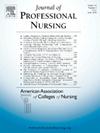Opportunities for improvement of neonatal nurse practitioner education: complex care and pediatric advanced life support
IF 2.9
3区 医学
Q1 NURSING
引用次数: 0
Abstract
Background
The scope of practice for the neonatal nurse practitioner is to provide care for patients from birth up to age two. Specific areas often not adequately addressed in the NNP curriculum include complex care of infants and toddlers up to age 2 and resuscitation outside the delivery room.
Purpose
This quality improvement project aimed to assess NNP interest and curriculum needs related to complex care of infants and toddlers up to two years, and the current state of NRP and PALS inclusion in NNP curriculum. The first survey was intended to assess the need for and interest in additional education on complex care of the infant and toddler up to two years of age. The second survey was intended to assess if NNP education addresses pediatric as well as neonatal resuscitation.
Results
Sixty-nine practicing NNPs responded to the first survey and 99 % identified a need for more education in the NNP programs on complex care. The second survey had 37 responses with 84 % requiring students to have neonatal resuscitation program provider status while 14 % require pediatric acute life support certification.
Conclusion
As the age for viability decreases with increased survival, the NNP will be responsible for caring for infants in the hospital for longer periods of time. Additionally, more infants will require post- discharge care for complex medical needs. Improving NNP education on age-appropriate resuscitation and complex care for neonatal patients as they age will improve patient and family outcomes and allow the NNP to practice to the full scope of their license.
改善新生儿护士执业教育的机会:复杂护理和儿科高级生命支持
新生儿执业护士的执业范围是为从出生到两岁的患者提供护理。在NNP课程中往往没有充分解决的具体领域包括2岁以下婴幼儿的复杂护理和产房外的复苏。目的:本质量改进项目旨在评估两岁以下婴幼儿复杂护理相关的NNP兴趣和课程需求,以及NNP和PALS纳入NNP课程的现状。第一次调查的目的是评估对婴幼儿到两岁的复杂护理进行额外教育的必要性和兴趣。第二项调查旨在评估NNP教育是否涉及儿科和新生儿复苏。结果69名执业NNP对第一次调查做出了回应,其中99%的人认为需要对复杂护理的NNP项目进行更多的教育。第二次调查有37个答复,其中84%要求学生具有新生儿复苏计划提供者身份,14%要求儿科急性生命支持认证。结论随着生存能力年龄的降低和存活率的提高,新生儿护理人员在医院负责照顾婴儿的时间将更长。此外,由于复杂的医疗需求,更多的婴儿将需要出院后护理。随着新生儿患者年龄的增长,改善NNP在适龄复苏和复杂护理方面的教育,将改善患者和家庭的结果,并使NNP能够充分发挥其执业资格。
本文章由计算机程序翻译,如有差异,请以英文原文为准。
求助全文
约1分钟内获得全文
求助全文
来源期刊
CiteScore
4.80
自引率
8.00%
发文量
153
审稿时长
52 days
期刊介绍:
The Journal will accept articles that focus on baccalaureate and higher degree nursing education, educational research, policy related to education, and education and practice partnerships. Reports of original work, research, reviews, insightful descriptions, and policy papers focusing on baccalaureate and graduate nursing education will be published.

 求助内容:
求助内容: 应助结果提醒方式:
应助结果提醒方式:


